A lot of our food isn’t really food at all; it’s a mix of increasingly refined and manufactured substances designed to keep costs low and shelf-lives long. As a popular new book takes aim at the food industry, Martin Saunders considers how Christians should respond
If you are what you eat, then I’m afraid I’ve got some really bad news. Many of us are part reconstituted cow tendon, part industrial by-product and part factory-bleached oil. At least, that’s one of the main claims of the growing movement against Ultra-Processed Food (UPF): a from-the-ground-up dietary revolution that’s being spearheaded by an unlikely frontman.
Dr Chris van Tulleken, who, with his brother Xand, is best known as one of the faces behind popular Cbeebies medical show Operation Ouch, has authored this year’s surprise bestseller, Ultra-Processed People (Cornerstone Press). It’s a book that makes some incredible – and incredibly concerning – assertions about the food we eat; how it’s made and what it’s all doing to our bodies. After pinning itself to the Sunday Times’ best-seller lists – as if held in place by some sort of laboratory-manufactured gum – it’s creating an increasingly big debate with some profound implications. So should Christians take time to engage with the discussion around UPF, and, if so, how?
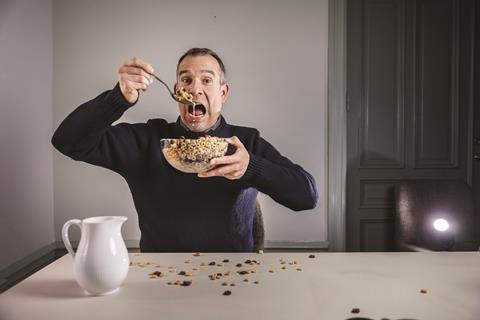
I’m eating what?
Ultra-Processed People is frequently hilarious and terrifying, often all at once. The trademark physician’s wit of van Tulleken, and the easy-reading style of the book, helps the reader to swallow its uncomfortable truths. It unpacks the author’s research into this category of food, which turns out to be incredibly broad – essentially, anything with an ingredient that isn’t in the average kitchen cupboard. It follows him on a self-induced 30-day health trial, where he eats nothing but UPF. Similar to Morgan Spurlock – the Super Size Me filmmaker who ate nothing but McDonalds for 30 days – van Tulleken puts his own body on the line in order to relay first-hand the impact of an entirely ultra-processed diet.
Ultra Processed Food is anything with an ingredient that isn’t in the average kitchen cupboard
During his month of self-destruction, as his weight and other physical attributes begin to take a negative turn, he begins a personal investigation into why so much of our food is filled with ingredients like carboxymethyl cellulose and sodium stearoyl lactylate. The answer is almost as complex as the recipe for a tube of Pringles, but what’s really concerning is just how widespread UPF is. The sandwich ham that you might imagine contains little more than meat and some added water is actually a catalogue of stabilisers and preservatives; the sliced bread for which you think you know the recipe is laced with a cocktail of extra elements. UPF is everywhere.
The author goes to lengths to explain the reasons behind our shift to a largely ultra-processed diet, and unsurprisingly, economics plays a major role. Preservatives help to give food a much longer shelf-life (see Spurlock’s claim that some McDonald’s items have an almost eternal lifespan), and the ‘artificial’ – or at least lab-created – ingredients are cheaper to make than natural food. In an attempt to keep prices as low as possible in a challenging economic climate, where consumers are particularly sensitive to increases in the cost of a pint of milk, companies are relying more and more heavily on UPF to increase their profits.
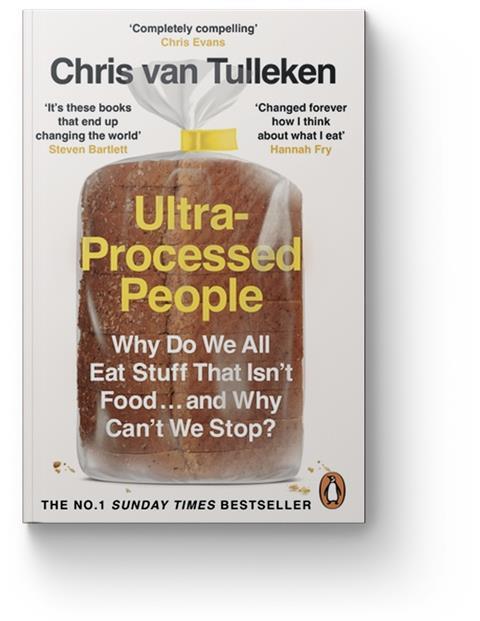
The truth is that the vast majority of us are eating a diet that’s either heavily impacted by UPF, or entirely reliant on it. And van Tulleken reckons that this, for a whole wealth of reasons, is very bad news for our health, and our world.
Ultra-bold claims
Perhaps it’s his kids’ TV training, but van Tulleken seems entirely sure about everything he says, and at times one wonders if his bold allegations quite stack up. His suggestion that the famous American food standard – FDA approval – is is allowing exceptions for food additives sounds shocking, but you’re left with a sneaking suspicion that the truth is more complex. This is my main issue with the book. In making everything so simple to understand, there’s a nagging sense that van Tulleken is being simplistic.
Another of his seemingly outrageous claims: that exercise doesn’t have any effect on weight loss, has been the subject of some criticism. Fellow TV doctor, Tim Spector, has emphasised that exercise alone won’t make much impact on weight loss without an accompanying change in diet, but van Tulleken goes further, drawing on a fairly obscure tribal study, which seems to demonstrate that exercise makes no difference at all. Dr Kevin Hall, a metabolism and nutrition expert at the US National Institute of Health, has said that this claim runs contrary to the accepted medical consensus, while University of Cambridge obesity expert, Dr Giles Yeo, said that van Tulleken’s idea contradicts “basic physics…we gain weight by eating more calories than we burn off”.
There’s another problem with Ultra-Processed People: the allegation that the book – and its rallying cry to avoid UPF – is essentially classist. UPF is generally cheap and in many cases addictive – a double whammy, which attracts and retains lower-income consumers. The privately educated and now well-compensated doctor, author and presenter, on the other hand, has the luxury of being able to trade his Tesco value loaf for an artisan sourdough cob. Others may not be so fortunate, and there’s an uncomfortable sense that the sort of UPF-avoidance that the book advocates for is more of a privilege than a choice.
With all these things considered, it’s tempting to suggest that we therefore need to take the book’s message with a pinch of salt – or at least a UPF substitute like potassium chloride. Yet van Tulleken does also make a number of important points, not only about the highly unnatural nature of the food we’re now eating, but also about some of the injustices which may be involved in its creation (more on this later). For Christians, then, there are several potential reasons to take the book’s arguments seriously.
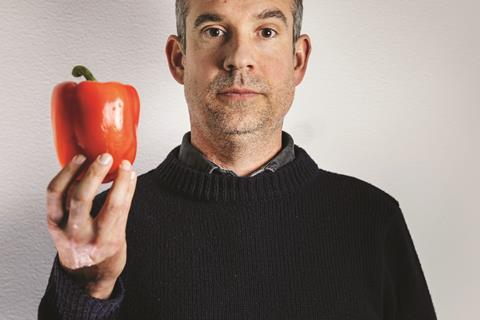
A temple of the Holy Spirit
Diet is a spiritual issue. Paul tells us to “honour God with your bodies” because they are “temples of the Holy Spirit” (1 Corinthians 6:19-20), and there are frequent warnings against gluttony in scripture. These passages help us to focus on the issue of over-consumption, and of allowing ourselves to become so unhealthy that our ability to serve God becomes inhibited. UPF, however, brings another dimension of challenge: the question of whether we’ve drifted too far from God’s intention for food.
Genesis 1:29 seems to suggest a fairly natural diet, rich in fresh plants and vegetables, is good for us, while Genesis 9:3 adds in meat: “Everything that lives and moves about will be food for you.” In fact, at the end of that verse, God gives Noah an even wider menu: “Just as I gave you the green plants, I give you everything.” One might use this verse as a proof text to suggest that God has declared the KFC Zinger Tower Burger clean. The question for us to chew over is: was that really what he had in mind when he said “everything”?
Poorer customers are targeted with affordable, addictive UPF products, at damaging cost to local farmers and businesses
While the nature of UPF itself might offer us some spiritual food for thought (ahem), there is a second challenge in van Tulleken’s book that feels harder to ignore. In order to keep food prices low, companies in profit and the shadowy investment funds in the background happy, according to Ultra-Processed People various injustices are being perpetrated. In one lengthy section he explores how UPF-loving brands like Nestlé are expanding into new communities in the Global South, where poorer customers are targeted with affordable, addictive UPF products, at damaging cost to local farmers and businesses. Closer to home, the relatively low cost of UPF-dominated food makes it an obvious choice for lower income families, filling children with additives and other lab-made ingredients that are strongly linked to obesity and other health issues.
Elsewhere the author describes the devastating environmental impact of UPF (which contributes far more to greenhouse gas emissions than other food groups). “The food security that many of us enjoy is the product of a system of production that has kept costs low by destroying wild land and not paying for the costs of atmospheric carbon”, he writes chillingly. Even if the arguments do contain some inaccuracies and over-simplification, there’s a prevailing sense that UPF isn’t just bad for the body, but also the soul.
UPF, then, is a justice issue, albeit a complex one. Or rather, it seems to contain – like one of those long lists of unpronounceable ingredients – a series of injustices all wrapped up together. If we love all of our neighbours, we shouldn’t be satisfied when their poverty makes them a target for trash food with dubious nutritional value. If we care about our stewardship of the planet, we should take a dim view of food processes that harm it.
There’s a prevailing sense that UPF isn’t just bad for the body, but also the soul
Towards the end, Ultra-Processed People comes across as a more generalised rant against capitalism. Food production makes affordable what might otherwise be out of reach, yet its products also have an undeniable dark side. As innocuous as it might seem, the content of the food we eat – and what it’s doing to both our bodies and our planet – does matter, if only because God has created and entrusted us with both. There are no easy answers, but it may not be good enough to simply chow down on those Turkey Twizzlers in blissful ignorance.
Christian diets
In an effort to interpret the food verses found in scripture, a range of Christians have devised diet plans that claim to have a biblical basis. Here are some of the most notable…
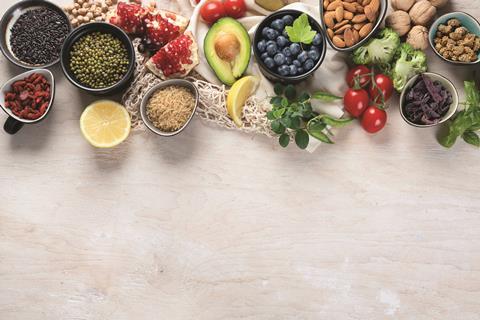
The Daniel Plan
Purpose-Driven Life author Rick Warren is one of the names behind this Bible-based diet, which originated at Saddleback Church and saw more than 15,000 people engage in a six-week journey that was part devotional, part anti-obesity drive. Participants not only adhere to a special diet of whole foods, but also study biblical health principles in a small-group setting. It does not involve eating the sort of plant-based diet described in Daniel chapter 1, unlike…
The Daniel Fast
Hollywood star, Chris Pratt, made headlines in 2019 when he embarked on a 21-day health plan based on Daniel 1:5-16, in which the eponymous prophet and his friends refused the royal menu in favour of a strict diet of water and vegetables. However, dieticians have urged caution to anyone who isn’t a major Old Testament character – one told the magazine Men’s Health that “it’s really not a good idea to do”, because it lacks “all kinds of nutrients”.
What Would Jesus Eat?
This is an eating plan proposed in a 2011 cookbook by Don Colbert, which is sometimes known as ‘The Jesus Diet’. WWJE promotes a simple Mediterranean diet likely to have been similar to the one enjoyed by the Messiah 2,000 years ago. While it’s not directly an attempt to lift recipes from the Gospel narratives (there’s nothing involving five loaves and two fish, for example), it does claim to be “modelled on Jesus’ example”.
The Maker’s Diet
Critics claim this 40-day eating plan is really only a gateway for creator Jordan S Rubin’s dietary supplement companies. The temporary food plan itself focuses on eating whole, unprocessed foods such as vegetables, fruit and nuts, and embarking on a weekly partial fast.
Special mentions go to the Losing to Live programme by pastor Steve Reynolds, mainly because he also wrote a book called Bod4God, and Weigh Down Workshop, which at one time rivalled Weight Watchers for numbers of adherents, before founder Gwen Shamblin decried the doctrine of the Trinity and was labelled a heretic. At least Dr Chris van Tulleken will never have that problem.













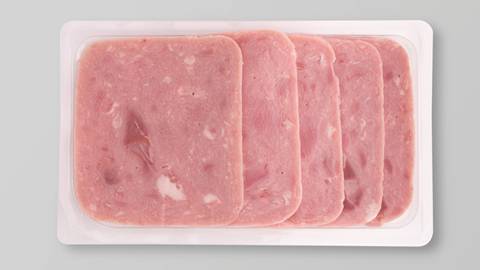
























No comments yet